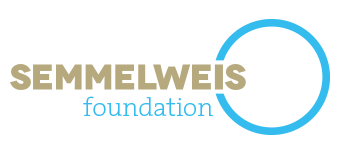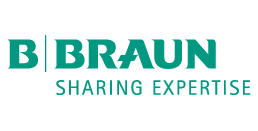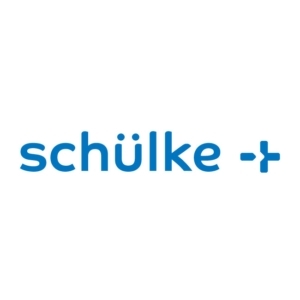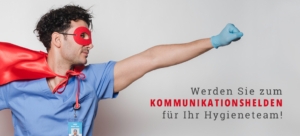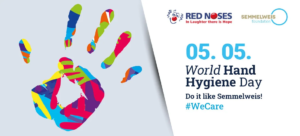THANK YOU FOR JOINING!
This year is a challenging year for everyone working in health care, all our experts are certain that we are still going to be fighting travel bans and so on until the beginning of next year. So, the Semmelweis foundation decided that we will postpone our in-person conference. The fourth CEE Conference on Hospital Hygiene and Infection Prevention will prospectively be held in May 2022, we will confirm the date as soon as possible.
The situation we are all in has taught us a lot of new skills, one of them being able to use video conference tools. In 2021 we are going to challenge this new skill and invite everyone to an online conference.The event will take place on March 10th 2021.
The content and main focus of the digital event will be to talk about an action plan! We see a huge chance that the awareness of everyone in health care as well as in all citizens towards increased hygiene, especially in health care institutions will help us sustainably change the way this topic is talked about and acted upon.
We want to learn what mechanisms worked on the COVID19 crisis and what parts of these we can use in the much harder fight against HAI. How can we ensure that all health care workers are suitably trained and have enough time to execute all measures that are needed to increase patient safety?
In preparation for this event we welcome any input you have on this matter.
Send us your ideas, your thesis or a completed paper – we will make sure that all opinions will be heard: office@semmelweis.info
Virtual
13.05-13.35
Keynote
Environmental Hygiene at time of COVID-19: the Clean Hospitals approach
Didier Pittet, WHO
13.35-14.05
Perspecitve of a Chief Medical Officer
Katharina Reich, Federal Ministry of Social Affairs, Health, Care and Consumer Protection
14.05-14.25
Experiences of COVID outbreaks and learnings for the 3rd wave
Biljana Carevic, Clinical Center of Serbia
14.25-14.45
Reducing Surgical Site Infections – two successful projects, one short report
Hans Härting, AssekuRisk
14.45-15.00
Break
15.00-16.00
hospital reports: experience, problems, solutions and learnings from a pandemic
What can we learn from COVID for HAI?
Walter Hasibeder, Hospital St. Vinzenz Zams
Management and impact of the COVID pandemic on a 650-bed hospital in the south of Austria
Elke Schindler, Hospital Villach
Hospital-acquired bloodstream infections and multidrug resistant organisms (MDRO) infections among hospitalised COVID-19 patients
Emese Szilágyi, Péterfy Hospital and Jenő Manninger National Institute of Traumatology
16.00-17.00
Industry Talk
The association between shift patterns and the quality of hand antisepsis in a neonatal intensive care unit: An observational study
Judith Rittenschober-Böhm, Medical University of Vienna
Tamas Haidegger, HandInScan
Smart and Sophisticated Bio Decontamination
Davul Ljuhar, Braincon
17.00-17.15
Break
17.15-17.25
Antibiotic Stewardship
Franz Allerberger, AGES
17.25-17.55
CEE Initiative: Antimicrobial stewardship in CEE countries
Balázs Babarczy, National Public Health Centre of Hungary
Arijana Tambic Andrasevic, University Hospital for Infectious Diseases, Croatia
Lul Raka, National Institute of Public Health of Kosovo
17.55-18.25
Panel discussion “Learnings from a panedemic: raising the importance of hospital hygiene (workers)”
Hans Härting, AssekuRisk
Markus Müller, Medical University of Vienna
Katharina Reich, Federal Ministry of Social Affairs, Health, Care and Consumer Protection
B. Braun is a global manufacturer of medical technology and pharmaceutical products as well as provider of medical services. The company is a system provider that develops effective solutions and innovative standards in 16 therapeutic areas in the health care industry in close cooperation with users and partners. Its goal is to protect and improve the health of people around the world. The B. Braun product range comprises a total of 5.000 products, 95% of which are manufactured by the company.
Infection Prevention is the basis of any successful medical treatment. In partnership with B. Braun you profit not only from excellent products with proven quality but also from our expertise in implementing hygiene standards, including various services supporting your role as infection control leader. Get in touch with B. Braun Austria to effectively contribute to the prevention and management of infections in healthcare settings.
For more than 40 years, we have specialized in the distribution of products for the healthcare sector. In particular, we focus on medical devices, in-vitro diagnostics, life sciences, vet & food, clinical IT and also produce our own ELISAs. We supply customers in the fields of health care and research with flexible solutions, quality products, technical services and ongoing support. What started out as a small business in Vienna has become a multinational company. With our headquarters in Vienna (Austria), we now have 13 subsidiaries in Central and Eastern Europe (CEE), employing a team of 300 professionals. Biomedica’s reliability, business performance and quality of products are evidenced in our daily work. The ISO 9001:2015 certification ensures constant improvement in the quality of products and services throughout the entire group of our subsidiaries. We consistently show care and dedication for our customers, partners and employees, striving to realize our vision “We aim high for you.
HandInScan Inc., is a Hungary based health-tech company focusing on the prevention of spread of infectious diseases. With patented AI technology the Semmelweis Scanner™ gives immediate and objective feedback on the hand rubbing technique, enables continuous monitoring and ensures a unique tool to significantly improve hand hygiene behaviors.
Schülke & Mayr (acronym: schülke), headquartered in Germany, is a leader in infection prevention and hygiene for more than 130 years. schülke develops, produces and distributes medicinal products, medical devices, disinfectants and cosmetic skin care products. The company offers its customers innovative products, technologies and services in its core business fields Healthcare and Industrial Hygiene. schülke’s mission is to protect lives worldwide and therewith actively contributes to patient safety as well as to product safety. Today, the company employs more than 1,300 employees worldwide and sells its products in over 100 countries. Represented by 22 subsidiaries, schülke operates three production sites in Germany (schülke), France (Bioxal) and Brazil (Vic Pharma). The Austrian subsidiary was founded more than 30 years ago, currently managed by Sven Schedenig as General Manager and is successfully active in several countries.
Media partner
Springer Medizin provides high-quality specialized information and services for all stakeholders in the German-speaking health care system. Its product range includes journals, newspapers, books, and a large selection of digital offers for various physician groups, dentists, pharmacists, and those responsible for health policies. The publishing products are characterized by an excellent network of professional societies, trade associations, editors, and specialist authors. For about 170 years the Wiener Medizinische Wochenschrift ranks among the most renowned medical journals in the German-speaking countries. Springer Medizin is part of Springer Nature.
Download Folder
Environmental Hygiene during the time of COVID-19: the Clean Hospitals approach – Didier Pittet
Experiences of COVID outbreaks and learnings for the 3rd wave – Biljana Carevic
Reducing of Surgical Site Infections by 50% How to do it? – Hans Härting
COVID-19 How to prepare an ICU for a pandemic – Walter Hasibeder
The Challenge ofCovid-19-Pandemicand the Coping Strategiesin a Public Regional Hospital – Elke Schindler
The association between shift patterns and the quality of hand antisepsis in a neonatal intensive care unit: an observational study – Judith Rittenschober-Böhm
Hand in Scan: Contributions to the Research Agenda – Tamas Haidegger
Smart and Sophisticated Bio Decontamination – Davul Ljuhar
Antimicrobial stewardship in Hungary – Balász Babarczy
Antimicrobial stewardship in Croatia – Arjana Tambic Andraseciv
Antimicrobial stewardship in Kosovo – Lul Raka
Environmental Hygiene during the time of COVID-19: the Clean Hospitals approach – Didier Pittet
Experiences of COVID outbreaks and learnings for the 3rd wave – Biljana Carevic
Reducing of Surgical Site Infections by 50% How to do it? – Hans Härting
COVID-19 How to prepare an ICU for a pandemic – Walter Hasibeder
The Challenge ofCovid-19-Pandemicand the Coping Strategiesin a Public Regional Hospital – Elke Schindler
The association between shift patterns and the quality of hand antisepsis in a neonatal intensive care unit: an observational study – Judith Rittenschober-Böhm
Hand in Scan: Contributions to the Research Agenda – Tamas Haidegger
Smart and Sophisticated Bio Decontamination – Davul Ljuhar
Antimicrobial stewardship in Hungary – Balász Babarczy
Antimicrobial stewardship in Croatia – Arjana Tambic Andraseciv
Antimicrobial stewardship in Kosovo – Lul Raka
Panel discussion “Learnings from a panedemic: raising the importance of hospital hygiene (workers)” – Franz Allerberger, Hans Härting & Markus Müller
